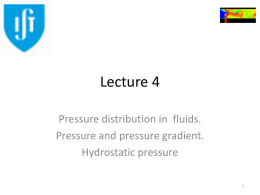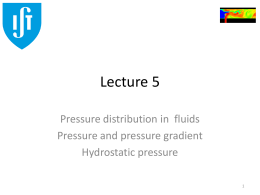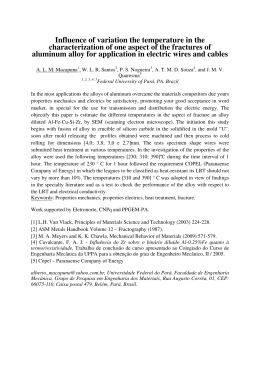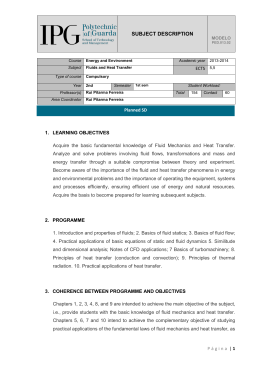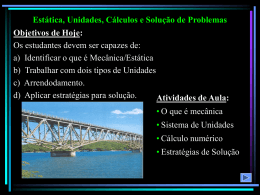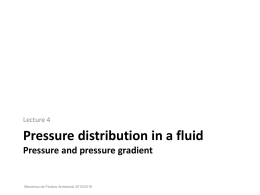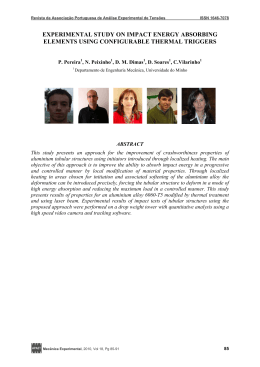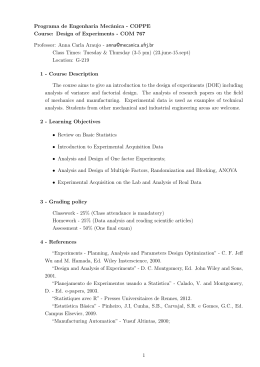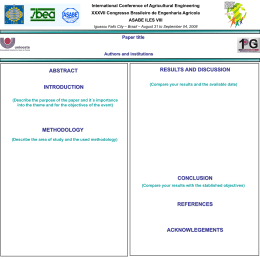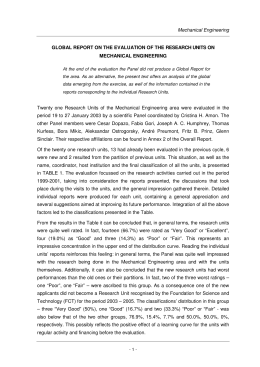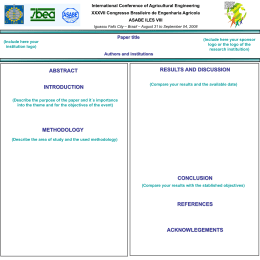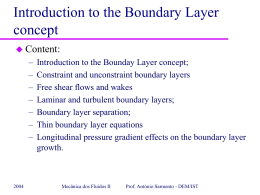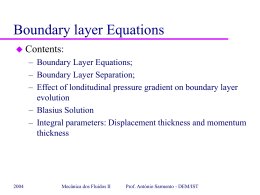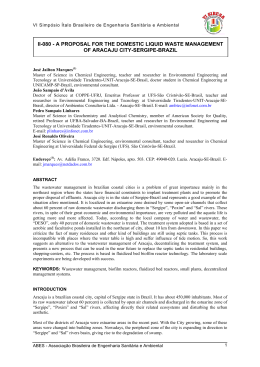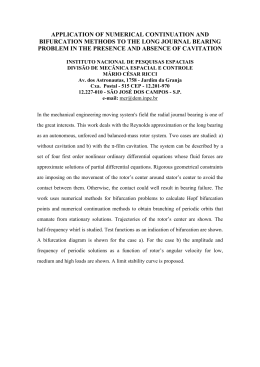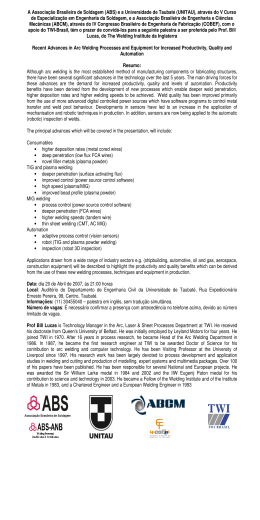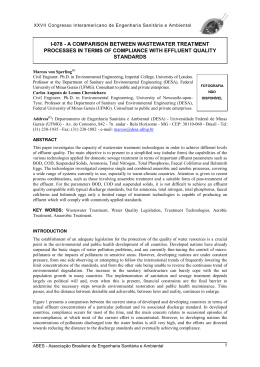Lecture 6 Hydrostatic forces on curved surfaces. Buoyancy and stability. Curve Surfaces • The vertical forces balances the weight of the fluid located above. • The horizontal forces balance the force applied to any surface with the same projection on a vertical plane. Engenharia do Ambiente - Mecânica dos Fluidos Ambiental Pressure center • Must be computed knowing the action lines of the vertical and horizontal forces and using the rules from statics. When the shape of the surface is complex, the calculation of the gravity center of the fluid above is computing intensive…. Engenharia do Ambiente - Mecânica dos Fluidos Ambiental Variable density Vertical integration must be done per steps of uniform density. Engenharia do Ambiente - Mecânica dos Fluidos Ambiental Buoyancy (Impulsão) • Is the weight of the displaced volume: b fluid gV • This equation assumes that density is uniform along the whole surface…. • In fact buoyancy is the summation of the pressure distribution…. Engenharia do Ambiente - Mecânica dos Fluidos Ambiental Buoyancy Downward force: weight of the fluid above the upper surface Upward force: weight of the fluid above the lower surface. Resulting force= Upward force minus Downward force Resulting force is applied in the gravity center of the displaced volume: buoyancy center . Engenharia do Ambiente - Mecânica dos Fluidos Ambiental Stability of floating bodies If the body gravity center was located below the buoyancy center, the body would be stable. Such boat would not be interesting for touristic cruises…. Engenharia do Ambiente - Mecânica dos Fluidos Ambiental Stability of floating bodies Engenharia do Ambiente - Mecânica dos Fluidos Ambiental Problems • The Mediterranean Sea salinity is 39 (g/l) and the Atlantic’s Ocean at Gibraltar salinity is 36. If the straight’s depth is 400 m and temperature was the same at any depth on both sides (Atlantic and Mediterranean). • What would be the level difference between both sides of the straight? A 1000kg / m 3 36kg / m 3 M 1000kg / m 3 39kg / m 3 A 1036kg / m 3 M 1039kg / m 3 A g 400 z M g 400 400 M A z 0.77m Engenharia do Ambiente - Mecânica dos Fluidos Ambiental A Atlantic Mediterranean • Can this step be kept? (Poderá este degrau manter-se?) • If not what happens? (Se não puder o que é que acontece?) • Why exist this difference in salinity between the two seas? (Porque existe esta diferença de salinidade entre os dois mares?) • What would be the equilibrium in the absence of evaporation? (Qual seria a situação de equilíbrio se não existisse evaporação?) Engenharia do Ambiente - Mecânica dos Fluidos Ambiental Engenharia do Ambiente - Mecânica dos Fluidos Ambiental Engenharia do Ambiente - Mecânica dos Fluidos Ambiental
Download

